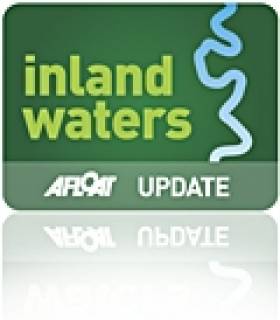Displaying items by tag: Midland Fisheries Fund
#InlandWaterways - Minister Fergus O'Dowd today (3 May) helped launch a new pilot scheme by Inland Fisheries Ireland (IFI) through which angling clubs and organisations can access funding to undertake sustainable development works in the Midland Fisheries Group permit area.
The Midland Fisheries Fund has an initial allocation of €50,000 which has been created from angler contributions set aside from the permit income received by IFI in the Midlands Fisheries Group area. The scheme, which is similar in design to the Salmon Conservation Fund, will allow for habitat improvement but importantly also includes angling development projects in Midlands waterways.
Successful applications will be provided with technical assistance to help them become reality and will foster links between the fishery owners, State agencies and land owners.
The application process itself, says IFI, "will instill confidence in project promoters who are often apprehensive due to the complicated nature of forms and permissions".
The scheme is exclusive to the Midland Fisheries Group area and is only open to clubs in that area.
Minister O'Dowd said at the launch: "This fund reaffirms IFI’s objective to facilitate stakeholders to undertake sustainable development works. These works will enhance and improve fisheries habitats and angling tourism potential and the contribution the inland fisheries resource makes to the economy."
The minister - who is currently undertaking a public consultation around the country in relation to the review of fisheries legislation - said he was encouraged by the angling stakeholders' enthusiasm, knowledge and interest in protecting, managing and developing the resource.
"This scheme encapsulates the partnership approach between IFI and its stakeholders, ensuring projects are environmentally sustainable, undertaken with the appropriate permissions and guidance and developed by local angling clubs for the benefit of locals and tourists alike," he said.
An information evening on the Midland Fisheries Fund will take place in Lough Owel Angling Centre on 14 May at 6.30pm.
Application forms for the fund are available online HERE. The closing date for receipt of application forms is 15 June 2013.
Meanwhile, the North South Ministerial Council (NSMC) has backed an initiative for the Loughs Agency to support the Carlingford Oyster Festival this August.
The Aquaculture and Marine sectoral meeting held in Carlingford this morning was attended by Minister for Natural Resources Pat Rabbitte, NI Minister for Rural Development Michelle O’Neill, Minister Fergus O’Dowd and NI Minister Nelson McCausland, who were all keen to endorse the proposals of the Loughs Agency to support the festival.
Taking place from 8-11 August, the festival has been developed by the Carlingford Cooley Tourism Association as a family-oriented event that showcases locally produced oysters and seafood. The agency will work in partnership with the local festival organisers on the annual event which attracts large numbers of visitors to the Carlingford area.
Minister O'Dowd said the festival “offers a real opportunity to showcase local produce and bring an international focus on Carlingford Lough as a production area of distinction for excellence seafood."
The ministers were also keen to emphasise that the tourism and visitor potential of the lough area should also benefit from a strong and vibrant oyster festival featuring as an attractive occasion on tourism and event calendars across the island and internationally.
























































